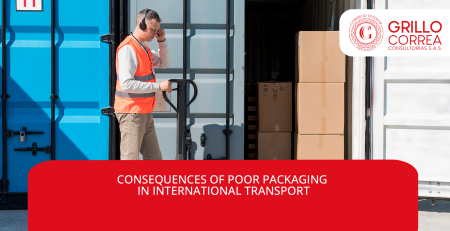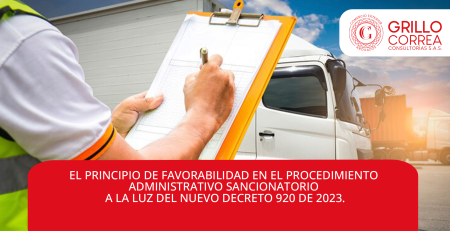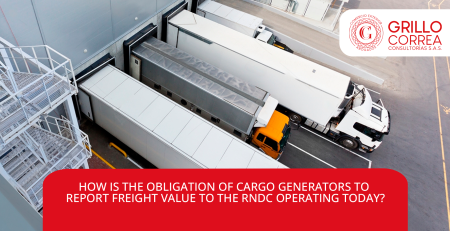IMPLEMENTATION OF CIRCULAR 170 FOR LAND TRANSPORTERS, FREIGHT AGENTS, MULTIMODAL TRANSPORT OPERATORS, AND OTHER FOREIGN TRADE OPERATORS
WHAT DOES CIRCULAR 170 SAY ABOUT THE INTEGRAL SYSTEM FOR THE PREVENTION AND CONTROL OF MONEY LAUNDERING?
Through Circular 170, the procedure that users of the customs and exchange service must follow is established to prevent, detect, control, and report suspicious operations that may be linked to money laundering within the framework of the Comprehensive System for the Prevention and Control of Money Laundering (SIPLA).
Entities obligated to implement SIPLA include companies providing foreign trade services and currency exchange professionals. This encompasses public and private warehouses, customs brokerage firms, port companies, operator users, industrial and commercial entities in free trade zones, transportation companies, international freight agents, postal and express traffic intermediaries, courier companies, permanent customs users, highly exporting users, other customs function auxiliaries, and currency exchange professionals.
WHO INVOLVE THE CRIME OF MONEY LAUNDERING?
It should be noted that money laundering is a crime committed by those who acquire, safeguard, invest, transport, transform, store, preserve, guard, or manage assets that have their immediate or mediate origin in activities such as migrant trafficking, human trafficking, extortion, illicit enrichment, extortion kidnapping, rebellion, arms trafficking, trafficking of minors, terrorism financing, and administration of resources related to terrorist activities, trafficking of toxic drugs, narcotics or psychotropic substances, crimes against the financial system, crimes against public administration, smuggling, smuggling of hydrocarbons or derivatives, customs fraud, or aiding and abetting smuggling, aiding and abetting smuggling of hydrocarbons or derivatives in any form, or linked to the product of crimes committed in conspiracy, or give the assets from such activities the appearance of legality or legalize, conceal, or cover up their true nature, origin, location, destination, movement, or right to such assets.
WHAT SHOULD THOSE IMPLEMENTING THE SIPLA TAKE INTO ACCOUNT?
For its implementation, obligated entities must design and implement appropriate and sufficient control measures against money laundering, create an updated procedures manual, complete customer identification forms, appoint a SIPLA compliance officer, conduct internal audits, promptly report to the Financial Intelligence Unit (UIAF), train employees on SIPLA compliance, and establish codes of conduct through their board of directors.
YOU CAN ALSO READ –> YOU CAN ALSO READ –> STAND BY IN LAND TRANSPORT CARGO OPERATIONS
The SIPLA implemented by the obligated entity must contain appropriate and sufficient control measures aimed at preventing any exchange or foreign trade transaction from being used as a tool for concealing, handling, investing, or exploiting money or other assets from criminal activities, to give the appearance of legality to transactions and funds associated with them.
IN CONCLUSION
In this regard, and in accordance with the established norm, compliance with the duty regarding Circular 170 for foreign trade operators must be clear that it goes beyond a form with basic customer information to be linked. Special attention must be given to the behaviors and control measures outlined in this article, especially for those operators to whom a different prevention system than the mentioned circular does not apply.
Download the norm available on the web here: [Link to Circular 170](https://www.dian.gov.co/normatividad/Normatividad/Circular%20000170%20de%2022-11-2004.pdf#search=circular%20170)












